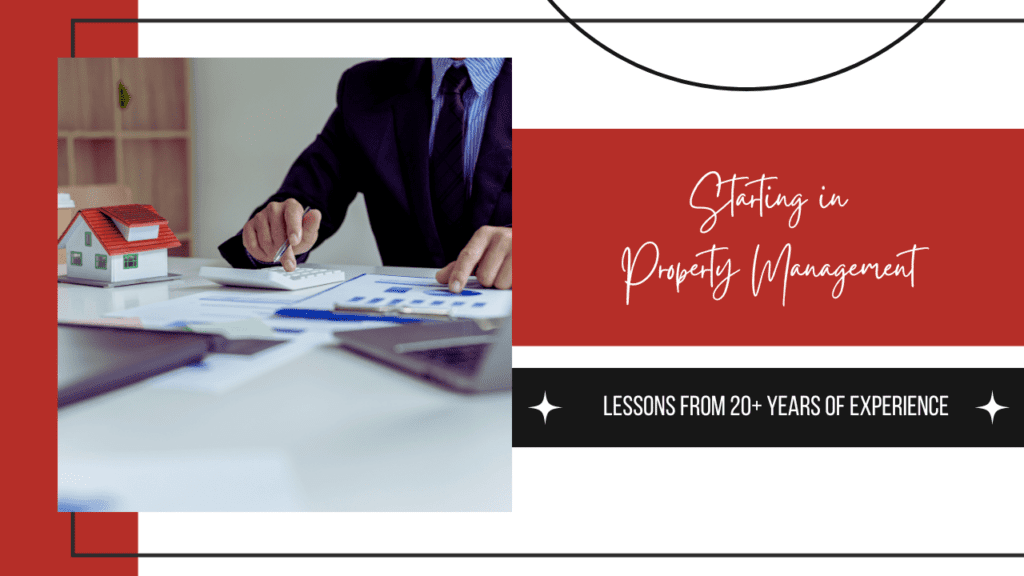
If you’ve decided to rent out your California property or invest in a rental property, you’ve made a great financial decision. The rental market remains pretty competitive, and you’ll find that no matter what type of property you’re renting out, there are plenty of stable, highly-quality tenants looking for an attractive rental home in a good location. Well-maintained homes are always in high demand, so you’ll want to make sure it’s going to appeal to your tenant pool.
Whether you’re renting out a home you’ve inherited or a property you once lived in yourself, you’re probably wondering how to get started with managing that property.
It can be overwhelming if you’ve never been a landlord before. These are some of the most important lessons we can share with you. Our advice comes from more than 20 years of experience as professional property managers.
Foundation Steps: How to Get Started
The first, and possibly most important, part of property management is leasing your property to a good tenant. You’ll have some decisions to make around lease terms, price, and upgrades or updates that might help you rent the home for more and attract better residents. Here are the initial and most foundational steps to take:
- Decide if You’re Renting for Long Term or Short Term
The first major decision you have to make in the current market is whether you want a long-term lease or if you’d prefer to rent your property out to short-term vacationers. There are pros and cons to each scenario. Vacation rentals are always in demand and you can get more money per night, but they require a lot more management and oversight. There are also some strict local rules you have to follow, including the payment of taxes. Long-term properties provide consistent income and stability. You won’t earn as much on a nightly or weekly basis, but you will be able to budget better, and you won’t have to provide furnishings and linens; nor will you have to hustle to keep your property rented and occupied.
- Preparing to List Your California Rental Property
Before you can find a tenant and start collecting rent, you’ll need to take care of a few housekeeping responsibilities, including:
- Removing any of your personal property from the house and having it thoroughly cleaned.
- Ensuring everything at the home works and functions the way it should.
- Pricing your home competitively to reflect the market and the demand.
- Creating some curb appeal to make sure your home looks attractive, welcoming, and move-in ready.
- Taking professional-level marketing photos. Pay attention to lighting and angles and take more pictures than you need so you can be selective.
Once the property is ready for the rental market, it’s time to begin your marketing and leasing process.
Finding and Screening California Tenants
Your rental property listing should go online so you can attract as many potential tenants as possible. Use all the popular rental sites, including Zillow, Trulia, HotPads, Rentals.com, and Zumper, among others.
When tenants begin to call and text, make sure you’re responsive. Be prepared to schedule showings.
Screening is an especially important part of property management. We have learned, over the years, that this is not the place to rush or cut corners. You need to know you can trust your tenant to pay rent on time, take care of the property, and follow the terms of the lease agreement. However, you also need to make sure you comply with all of California’s screening requirements.
Foundations of Managing and Maintaining Your Rental Property
Once you’ve approved a qualified tenant who meets all of your requirements and is ready to move in, your next step is to manage a few additional leasing details, such as collecting the security deposit and other move-in funds, reviewing and signing a lease agreement that’s legally enforceable and compliant with local rental laws, and performing a thorough move-in inspection to document the condition of your property.
When all of that is done, it’s time to set up processes for things like:
- Collecting rent on time. We can tell you that most tenants want to pay online.
- Accounting and financial documentation. You’ll need to set up a way to track your income and expenses.
- Lease enforcement.
- Tenant relationships.
- Maintenance. You’ll need plans for emergency repairs, routine maintenance, and preventative services. Don’t forget maintenance inspections. Vendor relationships are important.
Having systems and processes in place will make the management of your property much easier. You’ll find there’s less risk when everything is done consistently.
Common Challenges in Managing Rental Properties
When you have excellent tenants in place and you’re keeping your property well-maintained, the rental process should be peaceful and profitable. But, there will be challenges, and those challenges will often show up when you least expect them. Here are some of the things we can tell you from experience that are likely to happen at one point or another when you’re renting out your home.
- Rent Will be Late. You’ll expect your rent to be paid on time every month. That’s why you screen tenants carefully. It’s why you have a solid rent collection policy in place that you enforce consistently. Things still happen. When rent is late, reach out to your tenant as soon as you can just to find out what’s going on. Maybe they’ll promise to pay in a day or two. Maybe they’ll ask for some flexibility. Be willing to make a payment arrangement, especially if this is an unusual situation for an otherwise good tenant. You never want to rush into eviction, but you do want to be prepared to follow the process of evicting a tenant just in case it comes to that.
- Emergency Repairs. A solid preventative maintenance plan will reduce the number of emergency repair requests you receive. But, from time to time a water heater will explode or there will be a sudden leak or some other plumbing disaster, or a tree will fall through a window. When tenants call with an emergency, be empathetic, responsive, and professional. They’re the ones dealing with the situation in the moment, so they may be a bit emotional and a little stressed. Stay calm and professional, and take care of the problem right away. A good network of vendors and service providers will help you respond promptly.
- Lease Violations. What will you do if you notice there are pets on your property when you had not initially approved pets? You’ll need to address the issue right away with your tenants, and either screen the pets and collect a pet fee or have your resident get rid of the pet. Maybe your tenants will alter the property in some way, without authorization. Put your demand that they rectify the problem in writing and give them a specific amount of time to come into compliance.
- Property Damage. You may have tenants move out, and when you get inside the property, you find a lot of property damage was left behind. Use the security deposit to pay for the damage and make sure it’s well-documented.
You may also run into tenant conflicts and disputes. Try to handle them by referring to your lease agreement, listening to your tenants, and offering solutions. You don’t want things to escalate.
Lessons Learned about Property Management
Property management is more than collecting rent checks and fixing leaky sinks. It requires a blend of interpersonal and communication skills, financial resources, and a commitment to service.
Here are some of the lessons that we’ve learned after managing properties for more than two decades:
- Tenant Relationships are Important
There’s a lot of value in maintaining strong relationships with your tenants. Think about them as your customers, and find a way to establish professional relationships that are about mutual trust and accountability.
- Manage Your Money
Property management is also about numbers, and staying on top of your finances is important so you can know when you’re succeeding. From rent payments to maintenance receipts, keep detailed records of all transactions. This not only aids in tracking your cash flow but also simplifies tax filing. Remember that rent prices fluctuate with market conditions. Stay informed about local market trends and adjust rent prices accordingly to maximize your investment. Always plan for unexpected costs. You’ll need a financial buffer for unexpected repairs and vacancies.
- Prioritize Maintenance
The condition of your property is directly tied to your reputation, your earnings, and your ability to attract and retain tenants. Regular and preventative maintenance can extend the life of appliances and structures within your property. You’ll want a go-to list of reliable and reasonably priced contractors who can save you time and money when maintenance issues arise.
- You Need to Know the Laws
Legal mistakes are easy to make. This is especially true in California, where tenant protections are fierce, and laws are always changing. Make sure you understand fair housing laws, habitability requirements, security deposit restrictions, and timelines, as well as just cause eviction and rent control laws.
 These are some of the most important things we can tell you about managing properties professionally. If you would like some additional help or if you have any questions, please contact us at Five Star Property Management. We’d love to tell you more.
These are some of the most important things we can tell you about managing properties professionally. If you would like some additional help or if you have any questions, please contact us at Five Star Property Management. We’d love to tell you more.
